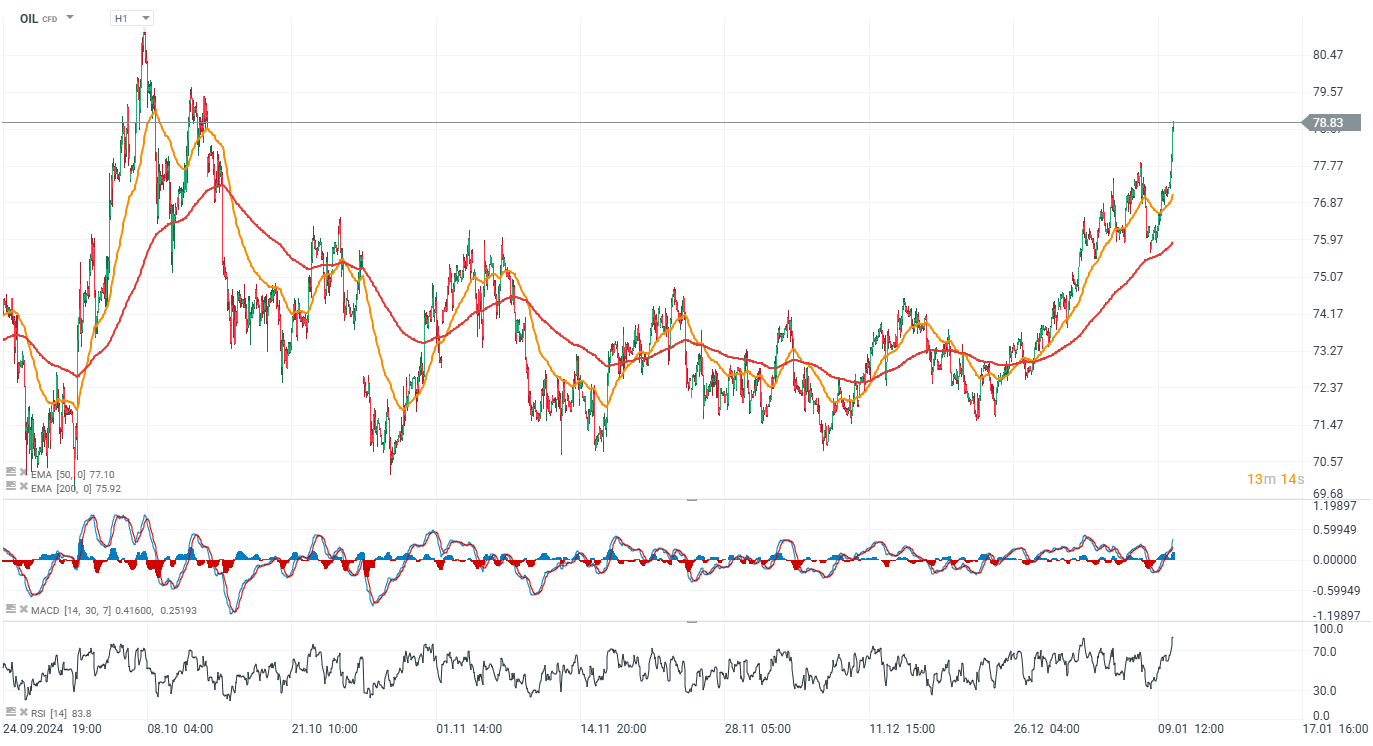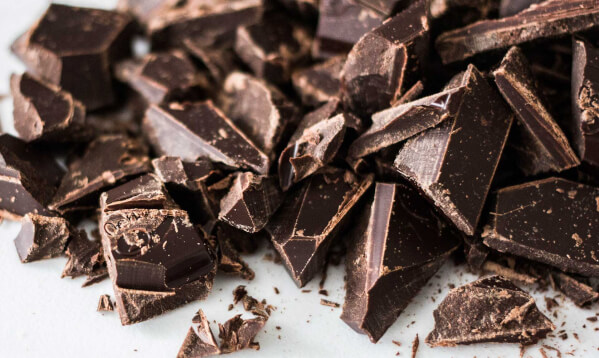Brent Crude oil (OIL) is gaining nearly 2% today, with the market pricing in improved fundamentals supported by geopolitics, colder temperatures and real concerns about supply disruptions and the impact of sanctions. The risk factors have nearly overshadowed broader economic uncertainty about China and Europe growth, and oil prices are trailing the dollar and US treasury bonds yields being on track for a third straight weekly gain after falling to near three-year lows in early December 2024.
- J.P. Morgan expects global oil demand to increase significantly by 1.6 million barrels per day year-on-year in the first quarter of 2025, mainly driven by higher demand for heating oil, kerosene and LPG
- Analysts estimated that for every degree Fahrenheit by which the temperature drops below the 10-year average for winter, it causes oil demand to increase by 113,000 barrels per day
- Additionally, this demand is being driven by colder weather than in the past two winters, both in Europe and the United States.
- The market is concerned that the latest sanctions imposed on Russia by the Biden administration could negatively affect supply.
- Russia's oil production in December fell below the OPEC+ target, to 8.971 million barrels per day of oil in the final month of 2024, 7,000 barrels per day less than agreed.
- The outgoing U.S. administration has conveyed that it will impose tariffs on tankers carrying Russian petroleum products above the $60 per barrel limit imposed by the U.S. and its European allies.
The risk of China and Iran?
- China's Shandong port group has issued a notice banning the unloading of oil from US-sanctioned oil vessels. The port is a key oil import hub on China's east coast and manages three major terminals.
- If such a ban is made permanent, it could increase transportation costs for independent refiners in Shandong, which are major recipients of sanctioned oil, and slow down crude imports into China. China's Foreign Ministry said it was unaware of the Shandong Port Group's decision to ban US-sanctioned ships from its ports.
- It is likely that Donald Trump will strengthen restrictions on Iranian oil exports once in power, potentially causing disruptions that could amount to up to 1 million barrels per day i.e. about 1% of global supply.
At its last meeting, OPEC+ postponed its plan to withdraw from joint production cuts in the wake of slowing global demand and rising US production last month. The organization, which supplies about half of the world's oil, decided to delay the production increase by three months and the full recovery of output by a full year, until the end of 2026. 
Source: xStation5

ข่าวเด่นวันนี้

🚨 ทองคำร่วง 3% ขณะที่ตลาดเตรียมตัวเข้าสู่ช่วงหยุดตรุษจีน

ราคาช็อกโกแลต (Cocoa) ร่วง 2.5% แตะระดับต่ำสุดตั้งแต่ตุลาคม 2023 📉

ก๊าซธรรมชาติ (NATGAS) ผันผวนน้อย หลังรายงานการเปลี่ยนแปลงสต็อกของ EIA


